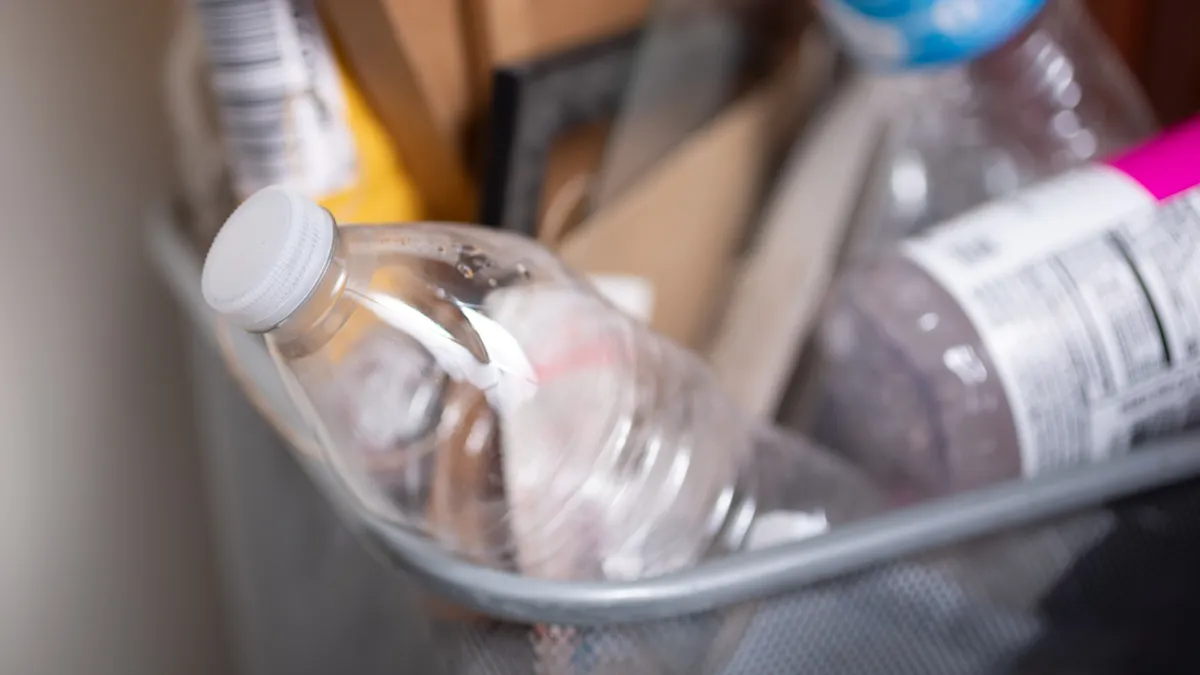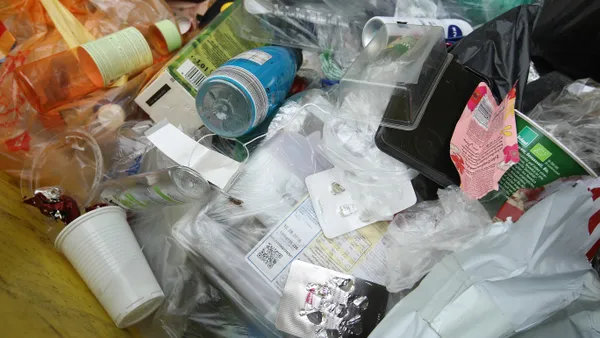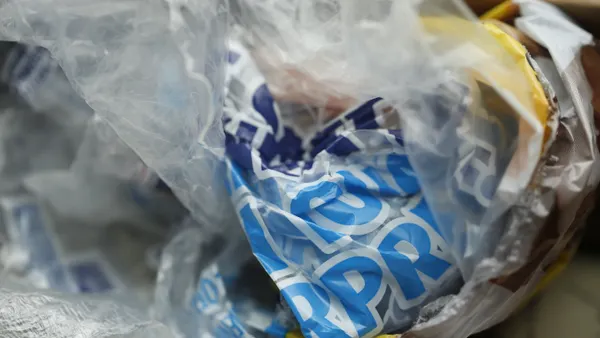Dive Brief:
- In its “Zero Waste to Zero Emissions” report released Tuesday, the Global Alliance for Incinerator Alternatives described source reduction and waste diversion efforts as critical to climate mitigation and adaptation.
- Ultimately, a zero waste model can transform the waste sector — which contributes to global methane emissions — into a net-negative source of greenhouse gas emissions, the report states. Cities that adopt a zero waste approach could reduce emissions by as much as 84%, and could in turn lower the emissions in mining, forestry, manufacturing and energy by leveraging recycled materials.
- The report highlighted the power of composting to reduce landfill methane emissions and boost soil resilience, and called for bans on single-use plastics. It also said the sector’s various energy recovery strategies are not effective, saying landfill gas capture is “unreliable” and describing incineration as “a major source of GHG emissions.”
Dive Insight:
GAIA has long fought against burning waste, a refrain in its latest emissions-focused report. But in this particular report, it also looked at the quantifiable impacts comprehensive zero waste strategies could have in different cities.
The organization identifies cities as apt to lead the charge, given their central role in waste management and vulnerability to the impacts of the climate crisis, like worsening floods and droughts. The report didn't focus on preferred disposal options for residual materials that may not be fully addressed by its recommended strategies.
Detroit, whose longstanding incinerator was shut down in 2019 following community activism, was the report’s U.S. case study. GAIA found that improving recycling could reduce the city’s waste sector GHG emissions by 35%.
Detroit’s curbside recycling participation rate is currently 38%, and its official waste diversion rate is around 4%. Characteristics of life in Detroit that pose challenges to reducing waste generation include that many residents in food deserts buy food in bulk, which can mean that some of it goes bad before getting consumed, said state Rep. Abraham Aiyash. In a virtual event Tuesday launching the report, he also noted that distrust in the local water leads to greater reliance on plastic water bottles.
If the city implements a zero waste framework and greatly multiplies composting and recycling participation and capacity, diversion could get to 59% by 2030, GAIA calculated. To make that a reality, Detroit would need to implement a network of household, community and industry-scale compost systems, build out recycling infrastructure and education and better track waste streams. Importantly, it would also need state policy changes, GAIA laid out. The current barriers go beyond Detroit; Michigan’s statewide recycling rate is far below national averages, Aiyash said, and disposal tip fees are low.
U.S. Rep. Rashida Tlaib, D-Mich., plugged the Break Free From Pollution Act and called for better incentive structures.
An important step to start is educating elected officials on the why and the how of different facets of zero waste, like composting, Aiyash said. “Don't assume that your elected officials understand these things, go in and teach them. And you would be surprised at how much money is used to show them the other science and the data,” Aiyash said.











